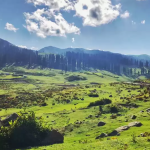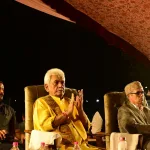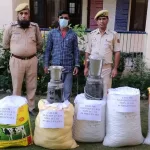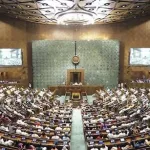The abrogation of Article 370 and Article 35A on August 5, 2019, marked a significant shift in the political and social landscape of Jammu and Kashmir. These articles had granted special autonomous status to the region, and their removal brought Jammu and Kashmir under the same laws as the rest of India. The decision has had far-reaching implications, with a mix of benefits and challenges for different stakeholders.
Article 370 was included in the Indian Constitution to provide special autonomy to Jammu and Kashmir. It allowed the state to have its own constitution, a separate flag, and autonomy over internal matters except for defense, foreign affairs, finance, and communications. Article 35A, added in 1954, empowered the state legislature to define “permanent residents” and provide them with special rights and privileges.
With the revocation, Jammu and Kashmir was reorganized into two Union Territories – Jammu & Kashmir, and Ladakh. This brought the regions directly under central government administration, aiming to integrate them more closely with the rest of India. The central government promised a more robust democratic framework, including local body elections. However, political leaders and activists, including former chief ministers, were initially detained, causing a significant political vacuum.
The government argued that abrogation would help combat terrorism more effectively. Enhanced security operations were launched, but the region saw a mixed response with both increased militant activities and successful counter-terrorism operations. A clampdown, including internet shutdowns and restrictions on movement was implemented to maintain order. While these measures were seen as necessary by some, they also faced criticism for impacting civil liberties.
The government announced various economic packages and development projects. The removal of special status was aimed at attracting private investment in real estate, tourism, and industries. Some industrialists and investors expressed interest, but ground-level changes have been gradual. Traditional sectors like agriculture and horticulture received promises of better infrastructure and market access. Scholarships and skill development programs were introduced, aiming to provide better opportunities for the youth.
There were attempts to promote cultural integration and revive heritage sites. However, concerns about preserving unique cultural identities remain prevalent. Efforts to restore and preserve temples, shrines, and other cultural landmarks have been undertaken, but the balance between development and cultural preservation is a delicate one.
The central government, particularly the ruling BJP, achieved a significant political goal. The abrogation aligned with their long-term vision of national integration and combating separatism. Nationalists who viewed Articles 370 and 35A as impediments to national unity saw this move as a historic correction. It bolstered the BJP’s support base across India.
Residents of Jammu and Kashmir gained access to various central government schemes previously unavailable. This included benefits in education, healthcare, and social welfare. Employment and development projects aimed at job creation and infrastructure development provided new opportunities, particularly for the youth.
Despite the positive changes, several challenges and criticisms persist. The detention of political leaders and activists created a sense of political alienation. Many locals felt their voices and concerns were marginalized in the decision-making process. The delay in holding elections and restoring full democratic processes has been a point of contention.
Ensuring timely elections and the restoration of a robust political framework is crucial for long-term stability. Engaging local leaders and addressing political grievances can help rebuild trust. Building strong local institutions and governance structures will be key to sustainable development.
Continued efforts to attract investment and develop infrastructure are essential. Focus on sectors like tourism, agriculture, and small industries can drive economic revival. Programs aimed at skill development, entrepreneurship, and employment generation will help harness the potential of the youth.
Balancing development with the preservation of cultural heritage and identity is important. Inclusive policies that respect local traditions and promote cultural diversity can foster social cohesion. Engaging with local communities, addressing their concerns, and involving them in development projects can build a sense of ownership and participation.
On the ground, the administrative overhaul has led to significant changes in governance. The direct control of the central government has streamlined some administrative processes, but the absence of a local elected government has left a gap in representation. Local body elections have been held, but the delay in assembly elections has been a contentious issue. The restructuring aimed to make governance more efficient and corruption-free, but the transition has been challenging, with bureaucratic hurdles and resistance from entrenched local interests.
The security landscape has seen both advancements and setbacks. The enhanced military presence and security operations have led to successful counter-terrorism measures, but have also resulted in increased militarization of the region. Economic development has been a key focus post-abrogation. The central government has announced several economic packages and incentives to boost investment.
While there has been some progress, particularly in sectors like tourism and horticulture, the ground reality shows that economic transformation is slow. Infrastructure projects are underway, but logistical challenges and local resistance have impeded swift progress. The removal of restrictions on property ownership has opened new avenues for business, but skepticism remains about the long-term benefits for local residents.
Socially, the abrogation has led to a complex mix of integration and alienation. Efforts to promote cultural integration are visible in government initiatives to restore heritage sites and promote tourism. However, concerns about the erosion of unique cultural identities persist. Local communities, particularly in the Kashmir Valley, express fears of cultural assimilation and loss of autonomy. The preservation of local traditions and languages remains a priority for many residents, who seek assurances that their cultural heritage will not be overshadowed by broader national integration efforts.
Educational initiatives have expanded, with increased access to scholarships and central government schemes. However, the quality of education and infrastructure in many areas still lags behind. Employment generation programs have been launched, but unemployment remains a significant issue, particularly among the youth. Skill development programs are in place, but their effectiveness in creating sustainable employment opportunities is still under evaluation. The local youth, while hopeful for better opportunities, often find themselves caught between promises and reality.
The abrogation of Articles 370 and 35A has brought significant changes to Jammu and Kashmir, with a complex mix of benefits and challenges. While the central government and nationalists view it as a step towards greater integration and development, the region faces ongoing political, economic, and social challenges. Ensuring political stability, economic growth, and social cohesion will be critical for realizing the long-term benefits of this historic decision.
The ground reality in Jammu and Kashmir post-abrogation is a tapestry of progress and challenges. The integration of the region into the Indian Union has set the stage for potential development and stability, but the journey is fraught with complexities. Balancing governance, security, economic development, and cultural preservation will be key to achieving a harmonious and prosperous future for Jammu and Kashmir. The voices of the local population, their concerns, and their aspirations must remain at the forefront of this transformative process, ensuring that the legacy of this decision leads to a united and thriving region.
(Author is a columnist and can be reached at: [email protected])








